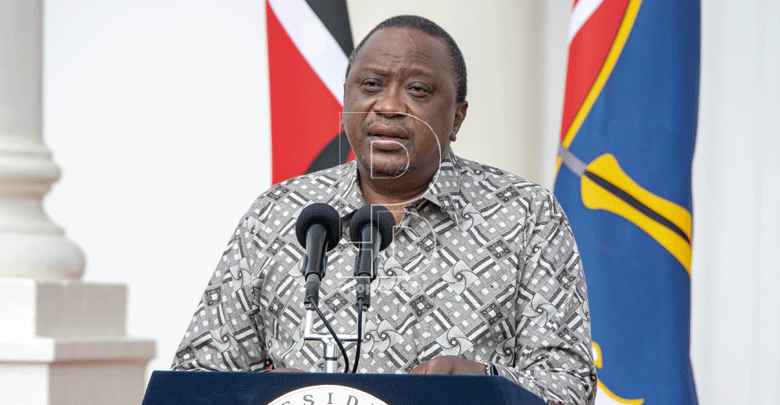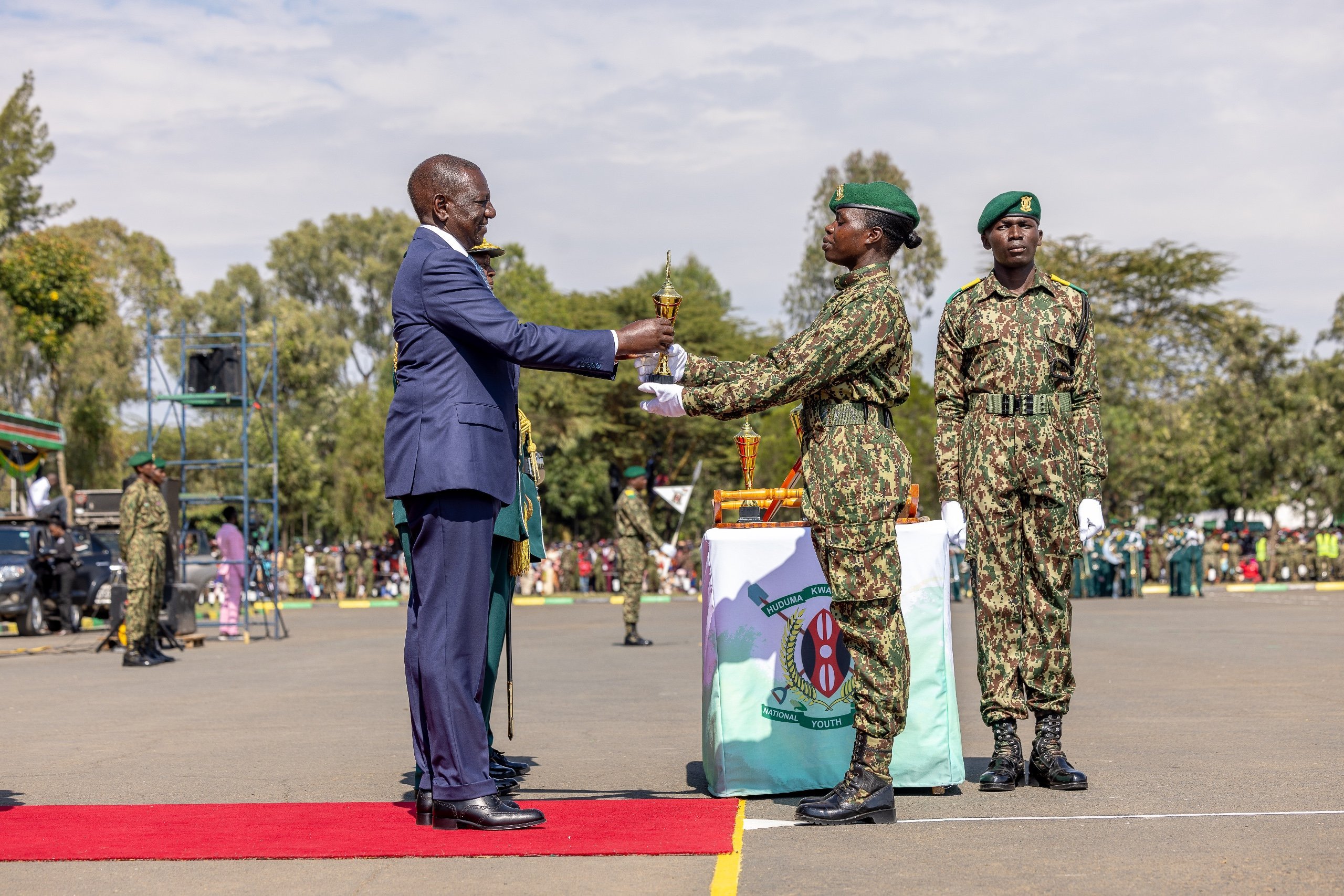Why Uhuru did not elevate six JSC nominees

Bernice Mbugua and Alfonce Mungahu
Handling of the drugs case involving the Akasha sons and rulings on terrorism-related matters may have played a key role in President Uhuru Kenyatta’s refusal to appoint some of the judges nominated by the Judicial Service Commission (JSC), People Daily can report.
High profile sources said yesterday that a report on background checks on some of the nominees had convinced the President against appointing the six to new positions in the Judiciary.
According to the sources, one of the nominees is accused of having bent the law in a judgment to favour a litigant in a land matter after receiving a huge bribe, while another was locked out for “his propensity to give bail to terrorism suspects.”
Uhuru on Thursday appointed 34 judges and rejected six nominees out of the 40 judges proposed by the JSC.
Those left out are Court of Appeal nominees Justices George Odunga, Joel Ngugi, Weldon Korir and Aggrey Muchelule and Evans Makori and Judith Cheruiyot, who had been nominated to the High Court.
While refusing to appoint the then 41 judges in 2019 (one has since died), Uhuru cited integrity issues among some of the nominees.
Though our sources did noy specifically point at the judges in question, a cross-section of top lawyers have linked the President’s failure to appoint Odunga and Ngugi to the Court of Appeal to their participation in the five-judge Bench ruling in which the High Court judges declared the Building Bridges Initiative (BBI) process unconstitutional.
“A report by the NIS raised a red flag among some of the candidates. The information was shared with State House after the JSC interviews,” said the source, a senior lawyer, who requested anonymity because of the sensitivity of the issue.
According to the source, the President’s refusal was also linked to the handling of the drug-trafficking case against the Akasha brothers, who were later jailed in the US after their extradition from Kenya.
“The fact that the Akasha brothers were swiftly jailed in the US after long-periods of ‘monkey business’ in the local courts embarrassed the Judiciary, a matter that was acknowledged by retired Chief Justice David Maraga. The case was bungled in Kenya. The Akashas complained against some judges in their testimony,” said the source.
Baktash Akasha and his younger sibling Ibrahim Akasha, pleaded guilty to six counts of drug trafficking and corruption charges when they appeared in a New York court last year. The charges included distribution of methamphetamine and heroin and conspiracy to export drugs to the United States.
Baktash was jailed for 25 years in 2019 while Ibrahim will serve 23 years for the offences.
Adverse reports
During his January 2020 State of the Judiciary address former Maraga acknowleged that the Judiciary had failed in discharging its mandate in the Akashas case.
“Recently you spoke about the Akasha case and I agree with you your excellency, that’s a shame to our country.
“That’s a shame to our country and as I have said before, it is one matter that embarrasses every one of us, but I’m sure you have reports and you know how that is done.
“It is not only the Judiciary, but it also involves literally all of the stakeholders in the justice system,” Maraga who was responding to Uhuru’s criticism of the Judiciary over the Akasha case said.
Former JSC member Mercy Deche recently told a local television station that though authorities had contacted the commission over some of the nominees, saying they had adverse reports on them, they did not provide evidence.
She also expressed concern that some new names had been added onto the list.
“The authorities just gave us a one liner that they had negative reports with evidence. I am shocked some of them were cleared,” said Deche, who participated in the interviews.
Through Head of Civil Service Joseph Kinyua, the court had been told the President had received adverse reports in respect of some of the persons recommended for appointment as judges.
He stated that it would be irresponsible and contrary to his oath of office, for the President to appoint judges or any other public or state officer, where serious questions have been raised about their integrity.
Katiba Institute has moved to court to challenge the swearing in of the 34 judicial officers while the Judges and Magistrates Association (KMJA) has also protested the refusal to appoint the six judges.
Chief Justice Martha Koome on Friday attended the swearing in of the judges at State House but later distanced herself from the event after outrage by a section of the legal fraternity. In a statement, the CJ asked Uhuru to appoint the remaining judges.
In a statement signed by KMJA general secretary Derrick Kuto, the lobby argued that the President had no powers to leave some judges out of the list of appointees.
“On June 3, 2021, His Excellency the President of the Republic of Kenya vide gazette notices number 5233, 5234 and 5235, appointed Honourable Judges to various courts and In a shocking turn of events, the President declined to appoint six (6) of the judges nominated by the JSC. All the six are currently serving on the bench,” said Kuto.
Bad precedent
He said that the President ought to have appointed all the judges as recommended.
“Once the JSC has recommended names for appointment, the President has no powers to tinker with the names.
Any such attempt amounts to interference with the institutional independence of the JSC, violation of the Constitution and in particular, the rule of law which the President swore to uphold.
The decision by the President to leave out the six is, therefore, baffling, unfounded and patently unconstitutional,” said the lobby.
“The President is setting a very bad precedent for this country, one of not following the rule of law and disobedience of court orders.
It is against this background that KMJA calls upon the President to respect the rule of law,” the association added.
Uhuru last week accused the Judiciary of stretching the country’s democratic boundaries beyond limits, citing the High Court decision declaring the Building Bridges Initiative (BBI) “unconstitutional, null and void”.
Justices Odunga and Ngugi sat in the five-judge Bench that made the BBI decision.
“The judges seem to have been locked out because of the ruling on the BBI process,” lawyer Danston Omari said yesterday.
Cheruyiot, who is the Registrar of the High Court, sat as a Children’s Court as magistrate seven years ago.
“Either during her work as the registrar of the High Court, she must have made administrative decisions that did not please the establishment.
She is key on transfer of judges and in placing files and documents before the judges. There is a connection between her administrative duties and her not to being appointed as a judge,” said another lawyer who requested anonymity.
During his tenure, Maraga challenged the President to table the adverse findings against the nominees while some lawyers said he should have produced it during interviews.
A petition has now been filed that seeks to compel the Chief Registrar of the Judiciary alongside the Chief Justice to swear in the four Judges and two magistrates who were locked out







